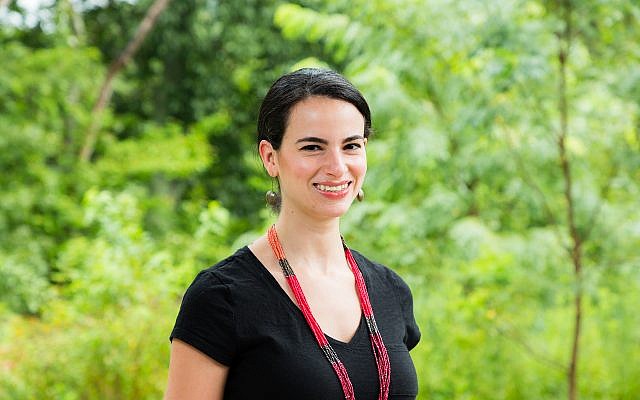The National Memorial for Peace and Justice
The National Memorial for Peace and Justice in Montgomery, Ala., has a steel pillar for each county in the United States where a lynching took place.
The National Memorial for Peace and Justice in Montgomery, Ala., has a steel pillar for each county in the United States where a lynching took place. When I visited with my fellow Repair the World city directors recently, I thought it would be easy to find the monument for Fulton County because I knew it would be crowded with the names of the 35 documented victims of racial terror lynchings in the community where I make my home. I scanned the oxidized columns one after another after another. There are more than 800. The Fulton County pillar was lost to me in a killing forest.
With the help of staff, I found our Fulton County history suspended from the ceiling, hanging heavy and ominous over my head.
The memorial is at once a place of deep dignity and honor for black Americans who were denied due process, terrorized, tortured, murdered, and who have gone largely unacknowledged for a hundred years or more. Or far less. It is also a place of deep shame. How do we begin to reckon with that?
At Repair the World, our mission is to make meaningful volunteer service a defining part of American Jewish life. As volunteers, we’re often meeting and serving people with whom we don’t share lived experiences. For white, affluent volunteers, this might mean entering an unfamiliar neighborhood, one that doesn’t have a grocery store with fresh produce, or a subway station, and where 40 percent of residents don’t own cars. We might listen to people working to break out of poverty while making minimum wage. We might hear a new perspective in conversation with black Atlantans. Without understanding our shared history, we are in danger of accepting the poverty and inequity we encounter while volunteering as incidental and accidental and not part of a larger system of inequality rooted in persistent and pernicious white supremacy.
Volunteering, when done right, opens an opportunity to hear the urgent needs in our community and strive to meet them. There is something deeply satisfying about knowing that someone will not go hungry tonight because of us. Yet Jewish scholarship teaches us to question. I believe we are obligated to ask ourselves “why?” Why is this work of feeding people who go hungry, housing people who sleep on the streets, tutoring children in inadequate schools still necessary in the wealthiest country in the world?
While Atlanta is a city with a proud legacy of black leadership and innovation across fields, the patterns of inequity are also clear. Atlanta is tied for the city with the greatest income inequality in the nation and is second only to Washington, D.C., when it comes to the widest racial achievement gap in urban school districts. Furthermore, Georgia has the most people under correctional control (prison, jail, probation and parole) of any state in the U.S. and a vastly disproportionate number of people incarcerated in our state are African American.
Our heroes of the civil rights movement made monumental progress, and yet the struggle is not over. Racism and inequity are entrenched problems on a scale where it can feel hard to make an impact. At Repair, we take small and consistent steps to care for each other. We also urge you to ask the big questions. There isn’t a single easy answer, but there are actions you can take today to gain a greater understanding of our shared history and the perspectives of people whose lived experience of inequity is different from your own. Join the Fulton County Remembrance Coalition, a local partner of EJI [the Equal Justice Initiative]. Apply for Project Understanding, the signature program of Atlanta’s Black-Jewish Coalition. Visit www.werepair.org/our-local-work/our-cities/atlanta/ to volunteer and learn with Repair. And check out the local organizing efforts of Showing Up for Racial Justice, Southerners on New Ground, Women on the Rise and others working toward the realization of all America promises.
Lily Brent is director of Repair the World Atlanta.




comments